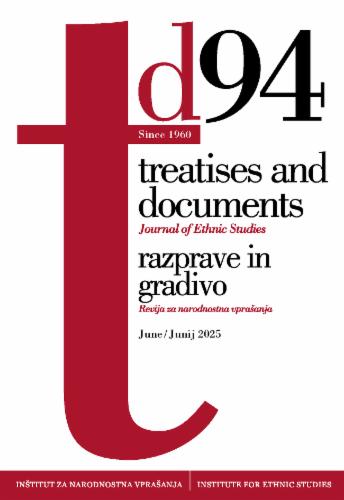Who Prefers to Stay? Individual and Institutional Factors Supporting Immobility among Minority Hungarian Higher Education Students
Data publikacji: 30 cze 2025
Zakres stron: 129 - 152
Otrzymano: 04 wrz 2024
Przyjęty: 04 maj 2025
DOI: https://doi.org/10.2478/tdjes-2025-0005
Słowa kluczowe
© 2025 Zsuzsanna Sütő, published by Sciendo
This work is licensed under the Creative Commons Attribution 4.0 International License.
Based on the migration models proposed by J. Carling, de Haas, and K. Schewel, we examine the immobility aspirations of minority and majority Hungarian students in Central Europe. Our aim is to identify individual as well as institutional factors that we hypothesise support students in developing their immobility aspirations. We analyse empirical data collected through a survey in 2019 among students of Hungarian-language higher education institutions in Hungary, Ukraine, Romania, Slovakia, and Serbia (N = 2,210). The results of multivariate and logistic regression analyses show that the development of immobility aspirations is supported by socio-demographic factors and social networks, as well as by institutional and academic factors, such as training programmes preparing students for local professions, and a greater degree of trust in the higher education institution and role partners.
 Profil Orcid
Profil Orcid